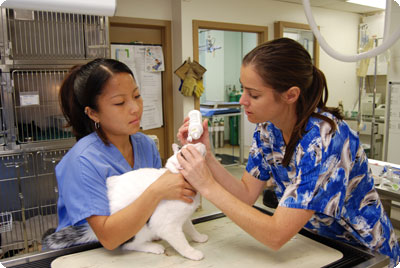Custom Wellness Care Tailored to Your Pet
Every pet is unique and different. For that reason, Ballston Animal Hospital delivers wellness care that is matched to the needs and lifestyles of your pet and you. At your routine well-care visits, we discuss your pet’s health, behavioral issues, and nutritional needs, as well as any questions or concerns you may have.
In addition to a comprehensive physical examination, our wellness services include internal parasite testing and prevention, external parasite control, immunizations, life-stage blood testing, and diagnostics or monitoring related to your pet’s individualized care. Our attention to detail ensures your pet receives the best care possible, leading to a long and happy life.
During your wellness care visit and exam, we might address the following subjects:
Preventive medicine is at the base of good health and we encourage you to participate in your pet’s wellness planning. While reading the information provided here, remember that this is only a start. Contact us by phone, email, or at your next appointment for information on any topic you would like to explore further. We look forward to tailoring a wellness plan just for you and your pet.
Special Note on Pet Poisoning
Based on current research, here are the top 10 most common pet-ingested toxins of 2009. Some of these listed are very toxic, such as anti-freeze and Aleve® (naproxen), while some are minimally toxic, like ant baits and silica packs. Take special care to keep these out of your pet’s reach and pet-proof your house. Remember: When in doubt, call your vet!
Dogs
- Anti-freeze (ethylene glycol)
- Chocolate
- Insect bait stations
- Rodenticides (i.e., mouse and rat poison)
- Fertilizers
- Xylitol-containing products (i.e., sugar-free gums and candies)
- Ibuprofen, Acetaminophen, and Naproxen (Advil®, Motrin®, Tylenol®, or Aleve® in brand name or generic form)
- Silica gel packs
- Amphetamines, such as ADD/ADHD drug
- Household cleaners
Cats
- Anti-freeze (ethylene glycol)
- Lilies
- Canine permethrin insecticides (topical flea and tick medicine designed for dogs but erroneously placed on cats)
- Household cleaners
- Rodenticides
- Paints and varnishes
- Veterinary non-steroidal anti-inflammatory medications (Rimadyl®, Deramaxx®)
- Glow sticks/glow jewelry
- Amphetamines (such as ADD/ADHD drugs)
- Ibuprofen, Acetaminophen, and Naproxen (Advil®, Motrin®, Tylenol®, or Aleve® in brand name or generic form)
About Chocolate Toxicity
The ingredients found in chocolates that can be bad for your pets include fat, sugar, and, most problematic, theobromine, a chemical that belongs to a class of alkaloid molecules called methylxanthines that are found in products produced from the seeds of the cacao tree, Theobroma cacao.
Different types of chocolates contain varying levels of theobromine, with the highest amount found in baking chocolate. Obviously, the weight of the animal also plays a large role in what constitutes a toxic dose of chocolate. Symptoms of chocolate toxicity can include vomiting and diarrhea, increased heart rate and panting, increased drinking and urination, hyperactivity, tremors, and seizures. Toxicity can result in the death of the animal if enough theobromine is eaten. There is a lot of variability in theobromine concentrations in chocolate candies, but on average:
- Milk chocolate contains 44 mg/oz-a toxic dose for a 50-lb dog would be 50 ounces
- Semisweet chocolate contains 150 mg/oz-a toxic dose for a 50-lb dog would be 15 ounces
- Baking chocolate contains 390 mg/oz-a toxic dose for a 50-lb dog would be just 5 ounces
When in doubt, always contact your veterinarian or poison control center. The information they will want to know:
- How long ago was the chocolate eaten?
- How much/what type of chocolate?
- What is the weight of your animal?
- Has the animal shown any of the symptoms of chocolate toxicity (vomiting, diarrhea, increased thirst, urination, activity, or panting)?
Finally, if the empty packaging is found, it is best to assume that your pet ate the entire contents.
What to do if you suspect your pet may have eaten something toxic:
- Contact us
- Call the Animal Poison Control Center (ASPCA), or
- Call any of the recommended emergency care clinics
The health of your pet can depend on many things, including preventing as well as finding and treating problems. The professionals at Ballston Animal Hospital will assist with addressing all of your pet’s health care needs—providing custom care for your special pet.

